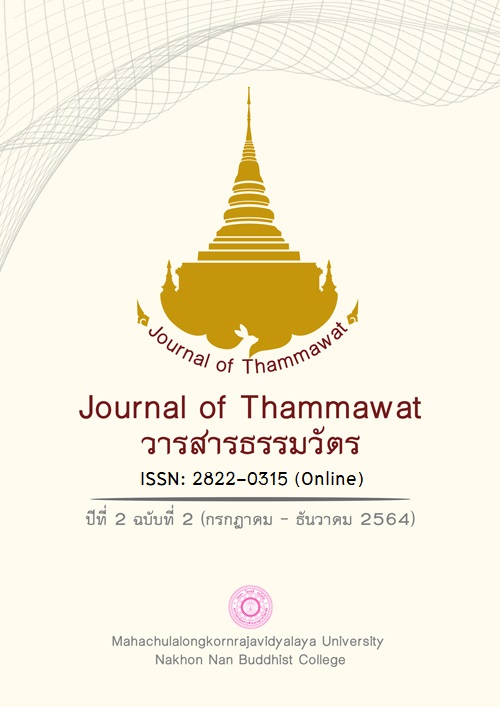Huáng Jīn Zhī Luàn and Political Stability in The Three Kingdoms Literature
Main Article Content
Abstract
Huáng Jīn Zhī Luàn Was a large rebellion in the late Eastern Han dynasty, where the forces formed by the union of people. There are 2 important factors: 1) the court has corruption 2) the economic downturn at the utmost. This group of rebels has deteriorated confidence in the court and the army. This event was the start of the horrible political stability of the Han Dynasty. And finally collapsed. Huáng Jīn Zhī Luàn conveyed to politics in Thailand that the government will be stable political stability. Must have a system to prevent corruption, which creates confidence for the people in helping to develop the country and will have to look after the people in the economy, both at the micro and macro levels, for the well-being of the people.
Article Details

This work is licensed under a Creative Commons Attribution-NonCommercial-NoDerivatives 4.0 International License.
References
เจ้าพระยาพระคลัง (หน). (2547). สามก๊ก (เล่ม 1). (พิมพ์ครั้งที่ 22). กรุงเทพมหานคร: ดอกหญ้า.
เจริญ วรรธนะสิน. (2559). สามก๊ก ฉบับนักบริหาร. (พิมพ์ครั้งที่ 5). กรุงเทพมหานคร : แสงดาว.
จารุบุตร เรืองสุวรรณ, (2526). บทบาทของรัฐสภาต่อความมั่นคงทางการเมืองง. รัฐสภาสาร.
พระมหาจักรพงศ์ ชินเมธี (คำยอดใจ). (2563 ). แนวคิดทางการเมืองของขงเบ้งในวรรณกรรมสามก๊กที่มีต่อสังคมไทย. วารสาร มจร สังคมศาสตร์ปริทรรศน์ ปีที่ 9 (1), 223-232.
ไพศาล พืชมงคล. (2550). สามก๊ก ฉบับคนขายชาติ (เล่มที่ 1). กรุงเทพมหานคร: บ้านพระอาทิตย์.
ลิขิต ธีรเวคิน. (2551). เสถียรภาพทางการเมือง เอ็มจีอาร์ออนไลน์. สืบค้นเมื่อ 23 มกราคม 2551, จาก https://mgronline.com/daily/detail/9510000009408.
วรศักดิ์ มหัทธโนบล. (2560). สามรัฐ ที่มิใช่ สามก๊ก (6) มติชนสุดสัปดาห์. สืบค้นเมื่อ 13 มิถุนายน 2560, จาก https://www.matichonweekly.com /column/article_40447.


